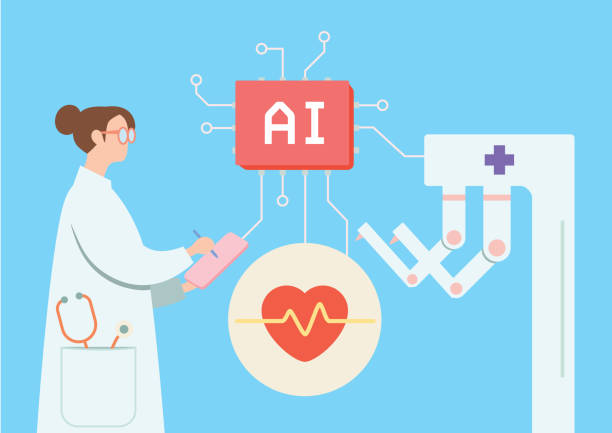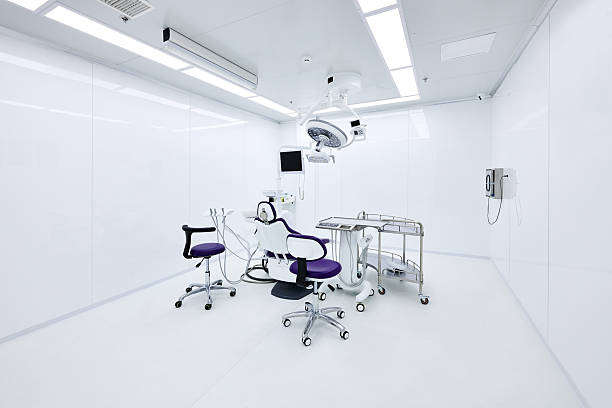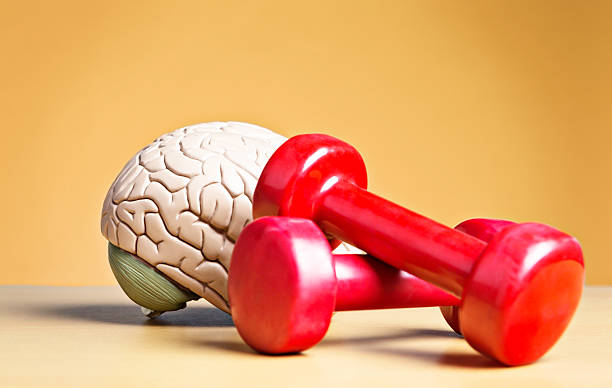The brain is responsible for all human thoughts, feelings, and decisions. Among all its parts, the frontal lobe is pivotal in determining who we are, for it influences judgment, self-control, planning, and the regulation of emotions. Knowing the development of this important region of the brain and its functions helps understand behavior, maturity, and mental health.
Early childhood marks the beginning of this process, but frontal lobe development continues far beyond the teenage years, often into a person’s mid-twenties. During this gradual growth, environmental experiences, relationships, and education shape the neural pathways that define long-term cognitive and emotional patterns.
This article examines the vital transitional periods in emotional and rational development, which are the frontal lobe functions that your brain learns.
Contents
- 1 The Science Behind Frontal Lobe Development
- 2 Early Stages of Frontal Lobe Development in Childhood
- 3 Frontal Lobe Development During Adolescence
- 4 Milestones of Frontal Lobe Development in Early Adulthood
- 5 The Role of Environment in Frontal Lobe Development
- 6 The Impact of Trauma and Stress on Frontal Lobe Growth
- 7 Frontal Lobe Development and Decision-Making
- 8 Supporting Healthy Frontal Lobe Development Across the Lifespan
- 9 Conclusion
The Science Behind Frontal Lobe Development
Milestone brain development observations start with the functions of the brain lobe and its growing influence in life. The frontal lobe is the executive function of the brain that helps in the management of functions like impulse control, organization, and time management. It is located in the front region of the brain.
Frontal lobe development takes place through the formation of new connections of neurons growing rapidly during early childhood and adolescence. These new neuron connections integrate sensory information, emotional awareness, and logical thought. Synaptic pruning occurs when the brain networks are refined by strengthening pathways that are frequently used and cutting pathways that are used infrequently.
This part of the brain also manages the executive action of decision-making and regulating emotions. In the developing stages of the frontal lobe, impulsivity and risk-taking behavior are prevalent, especially during the teenage years. Thus, young people tend to lack the ability to think long-term and lack the emotional balance to regulate their actions.
Improved judgment and empathy signal the end of the impulsivity and emotional dysregulation phase. The extra knowledge about the development of the brain has allowed parents, teachers, and mental health workers to better assist the growing child emotionally and intellectually.
Early Stages of Frontal Lobe Development in Childhood
In young childhood, the stage is set for rapid brain growth to occur, thereby aiding the child in their lifelong learning. During this period, the brain is in the crucial stage of learning to focus, solve problems, and construct emotional frameworks, all foundational to frontal lobe development.
Kids start to show executive function by completing routines, controlling impulses, and understanding social interactions. Specifically, play-based learning encourages even more cognitive function as it promotes imagination, decision-making, and cooperative learning.
Kids, especially younger ones, are very dependent on adults for support and guidance as they learn to navigate the world around them. Having support helps develop the neural pathways for empathy and moral development as well. Positive reinforcement, consistent routines, and gentle, caring support help early development, and nurturing creates avenues to emotional intelligence.
On the other hand, chronic stress or neglect can disrupt this delicate process. Adverse childhood experiences can cause difficulties with brain plasticity, resulting in the inability to regulate emotions or control impulsive actions during adulthood.
Frontal Lobe Development During Adolescence
During adolescence, one of the most dramatic stages of frontal lobe development occurs. The limbic system, or emotional center of the brain, is fully developed, which is why adolescents, with their frontal lobes still developing, are more prone to impulsive decision-making and emotional volatility.
Adolescents are still learning to balance immediate rewards and longer-term, future-oriented outcomes. During this developmental stage, risk-taking, experimentation, and peer influence become prominent, and while they may initially seem problematic, they’re necessary for independence and identity formation.
Adolescents develop their brain capacity from both educational and social settings. Participating in organized, structured activities, such as sports, art, and even community service, cultivates the higher-order thinking and self-control needed in disciplined activities. Decision-making in a responsible way tends to develop when close mentoring and positive family ties are present.
Promoting mindfulness and self-reflective as well as stress coping strategies during the teenage years actively contributes to the formation of new neural pathways for emotion regulation and concentration. All of these enhancements lead to positive outcomes in mental health, personal achievement, and even in school.
Milestones of Frontal Lobe Development in Early Adulthood
In a person’s twenties, the brain continues to develop, especially in refining emotional regulation, empathy, and impulse control. This stage corresponds to the completion of frontal lobe development, when the neural net firings are at their peak.
In early adulthood, people gain emotional control, rational thinking, and intentional decision-making, all of which manage higher complexity. These transitions often correspond to significant life changes. For example, a person may move to a new place for a job or educational opportunities and build new relationships. These experiences strengthen the brain’s capacity to assess potential risks and rewards and arrive at sound conclusions. The frontal lobe develops self-awareness, which helps shape a person’s moral compass and sense of purpose in life.
This stage of brain development has been described as sensitive to positive and negative influences. Constructive lifestyle patterns, such as healthy sleep, nutrition, and mental health care, promote neural resilience, while chronic stress and substance use will derail development.
Young adults can optimize this last stage of frontal lobe development and promote lifelong stability by prioritizing emotional health and personal growth.
The Role of Environment in Frontal Lobe Development
The structure of the brain is mostly determined by genetics, but its function is shaped by the environment. Experience and social interactions all affect the frontal lobe development.
Children who enjoy nurturing surroundings and consistent emotional support tend to strengthen their executive functioning skills and self-regulation. In contrast, environments that are unstable or chaotic may cause trauma with neural pathways weakening and increasing the risk for anxiety, depression, and impulsive behaviors.
Educational environments function in the same way. Schools that stimulate curiosity, promote empathy, and encourage problem-solving are frontal lobe activators. Emotional literacy programs that support the development of resilience help children and teens with decision-making.
Our surroundings continue to impact our brain health even in adulthood. Engaging in activities that are brain-stimulating, such as reading, learning new skills, or practicing mindfulness, promotes and maintains neural plasticity and slows down cognitive decline.
Healthy brain development hinges on a mix of healthy relationships, brain-stimulating activities, and a healthy balance of emotion.
The Impact of Trauma and Stress on Frontal Lobe Growth
Chronic trauma and stress may impede the brain’s functionality, particularly in regulating emotions and rational decision-making. When the body stays in the fight-or-flight mode, high levels of the stress hormone cortisol are released, which negatively affects the front lobe development.
In children, attention, memory, and impulse control, even into adulthood, unresolved trauma may lead to difficulty in emotional control and self-regulation. All of these things work together to negatively impact relationships, school, and overall mental health.
Repetitive, trauma-focused cognitive behavioral therapy, mindfulness, and EMDR (Eye Movement Desensitization and Reprocessing) are some of the treatment options designed to help restore healthy brain function and balance the brain and one’s cognitive ability.
Emotional development and overall well-being can be greatly impacted by trauma if the trauma is recognized and dealt with appropriately.
Frontal Lobe Development and Decision-Making
Identifying the relationship between frontal lobe development and decision-making is crucial. This portion of the brain enables future planning, calculating the pros and cons of specific actions, and exercising impulse control. The development of the frontal lobes during late teenage years and early adulthood shifts the brain’s capabilities from making rash and quick decisions to making thoughtful and careful ones.
The ability to control one’s frontal lobes allows an individual to predict the result of an action and value decisions made in high-pressure situations. This skill is vital in one’s ability to manage oneself, in relationships, and in leadership positions.
One’s decision involves empathy and moral reasoning. The matured frontal lobes give the ability to empathize, allowing the individual to value the needs of others and to weigh their needs against those of the larger community.
In summation, this brain region develops the individual’s ability to think and determines how the individual engages with their environment.
Supporting Healthy Frontal Lobe Development Across the Lifespan
Brain development begins from the moment one is born, and it is the result of one’s mental and physical rest, and the avoidance of stress. Cognitive decline in one’s later years is the result of poor frontal lobe growth.
- Get enough rest: Sleep is important in the consolidation of memories and the formation of neural pathways.
- Exercise: Working out boosts blood circulation to the brain and enhances one’s mood.
- Practice mindfulness: To balance emotions and relieve stress, try meditation.
- Maintain a balanced diet: Having a diet with all the right nutrients helps maintain energy levels and the proper functioning of neurotransmitters.
- Seek therapy when needed: Therapy helps with stress, trauma, and other issues related to the mind, thereby improving mental health.
All of the above will help with mental health, but they will also improve attention and the ability to create and control emotions. These are essential in all aspects of life.
Conclusion
Learning about the frontal lobe development will help in understanding how and why people think, feel, and act in a certain way at a certain age. The unfolding of the personality, and the development of judgment and other emotional aspects are from the early childhood days and curiosity to adulthood.
Healthy mindfulness, education, and nurturing settings assist the brain in its growth, which will help in developing mental resilience. With the right balance, individuals will also help in facing the challenges of life.
At Hillside Horizon, we aim at all aspects of emotional and neurological growth in order to achieve wellness and enable individuals at all levels to strengthen their self-awareness, balance, and mental health.




